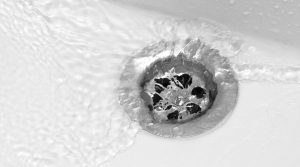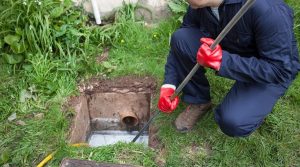Key Takeaway:
- Your air conditioner should never emit strange odors.
- Foul smells often signal issues ranging from minor maintenance needs to serious health hazards. Identifying and addressing the odor type promptly with professional help can ensure safety and comfort.
Why Does My Air Conditioner Smell Bad?
Your air conditioner is a workhorse, ensuring your home or business stays cool and comfortable. However, it’s concerning when it begins to emit unpleasant odors. Not only can these smells make your environment uncomfortable, but they may also indicate potentially dangerous problems that require immediate attention.
The most common causes of lousy AC smells are:
- Electrical or burning scents – Often due to wiring issues or overheating components.
- Rotten egg or sulfur odors – Typically, a gas leak or dead animal in the ducts.
- Chemical smells – Could stem from refrigerant leaks or nearby open chemical containers.
- Musty or mildew odors – A sign of mold or mildew growth in the unit or ducts.
- Vehicle exhaust odors – Indicates fluid leaks from the AC or heating system.
- Glue or paint thinner smells – Often tied to recent ductwork installation.
Each type of odor points to a specific underlying issue, and recognizing the scent can help diagnose and resolve the problem.
Common Air Conditioner Odors and What They Mean
1. Electrical or Burning Smells
Burning or electrical odors often indicate a mechanical issue such as:
- A failing compressor or fan motor.
- Wiring problems, like melted insulation.
- Accumulated dust burns off when the unit hasn’t been used.
What to Do:
- Turn off the AC immediately to prevent further damage.
- Call an HVAC professional to inspect and repair the unit.
2. Rotten Egg or Sulfur Smell
This firm, unpleasant smell could indicate:
- A natural gas leak which is highly dangerous and requires urgent attention.
- A dead animal or pest infestation in the ducts.
What to Do:
- If you suspect a gas leak, leave the building immediately and contact your gas provider.
- For pest issues, call pest control to remove any carcasses or nests.
3. Chemical Smells
Chemical odors, such as paint thinner or formaldehyde, might be caused by:
- Refrigerant leaks are hazardous to your health and the environment.
- Chemical containers should be opened near the air intake, which can spread the smell throughout the house.
What to Do:
- Inspect for open chemical containers and move them away from the AC intake.
- Call an HVAC technician to check for refrigerant leaks and repair the system if necessary.
4. Musty or Mildew Smell
A musty odor often stems from:
- Mold or mildew growth in the ductwork due to moisture buildup.
- A clogged condensate drain line leads to standing water in the system.
What to Do:
- Schedule a professional duct cleaning to remove mold and mildew.
- Have an HVAC expert inspect and clean the condensate drain line.
5. Vehicle Exhaust Smell
Even if your system doesn’t run on fuel, an exhaust-like odor might mean:
- Fluids leak from specific components and release harmful fumes.
What to Do:
- Contact an HVAC technician immediately to prevent exposure to toxic gases.
6. Glue or Paint Thinner Smell
This smell may result from:
- Newly installed ductwork, where the adhesive used to seal the ducts emits fumes.
What to Do:
- Ventilate the space by opening windows and running the AC fan.
- If the smell persists, call your HVAC contractor for assistance.
Frequently Asked Questions (FAQs)
Q: Why does the smell coming from my air conditioner seem so bad?
Foul odors typically indicate an underlying issue with your AC unit, such as mold growth, mechanical problems, or gas leaks. Addressing these problems quickly can prevent health risks and costly repairs.
Q: What should I do if my central air conditioner is blowing out a chemical-smelling odor?
Check for nearby chemical storage containers and remove them. If the smell persists, it could be a hazardous refrigerant leak. Turn off the system and contact an HVAC professional for inspection and repair.
Q: What scent does Freon have?
Freon, a refrigerant, has a faintly sweet or chloroform-like odor. Although leaks are rare, they can be harmful. If you suspect a Freon leak, call an HVAC expert immediately to address the issue.
How to Prevent AC Odors
Regular Maintenance: Schedule routine check-ups to keep your system in optimal condition.
Clean or Replace Filters: Dirty filters can trap moisture and promote mold growth.
Inspect Ductwork: Check for leaks or blockages that may lead to odors.
Store Chemicals Safely: Keep chemical containers away from air intakes to prevent fumes from spreading.
Clear Drain Lines: Ensure the condensate line is clogged-free to avoid standing water.
When to Call an HVAC Professional
Some odors, like dust burning off, are harmless and temporary. However, acting quickly is essential if you notice persistent or dangerous smells such as sulfur, chemicals, or burning. Leaving the problem unresolved could lead to severe health risks, system failure, or fire hazards.
Your comfort and safety are paramount. If your air conditioner emits any unusual smells, don’t hesitate to contact an experienced HVAC contractor. They’ll ensure your system operates safely and efficiently, restoring a fresh, clean atmosphere to your home or business.
This structure includes the requested intro, key takeaways, detailed explanations, and an FAQ section while staying concise and informative. Let me know if you’d like any further adjustments!
Whether you need faucet replacements, plumbing repairs, or sewer and drain cleaning services, BJC Plumbers is here for all of Jersey City and the surrounding areas. We offer 24/7 service at affordable rates. With our expertise and resources, we can quickly identify and resolve your plumbing issues.
Don’t wait until small problems become big ones—call BJC Plumbers today!







